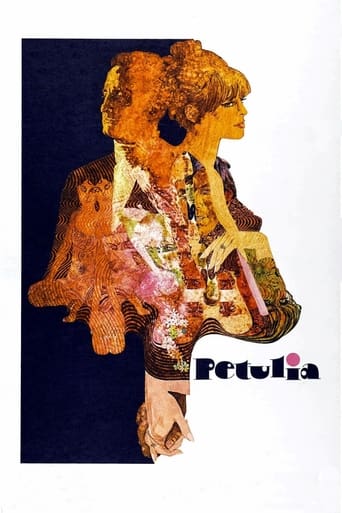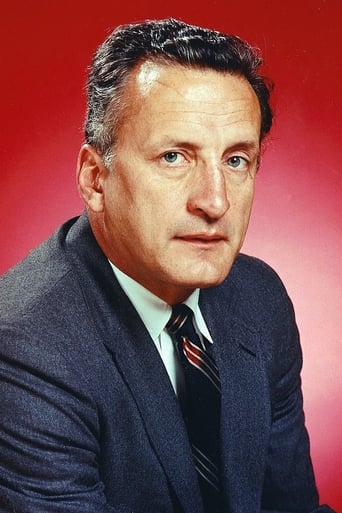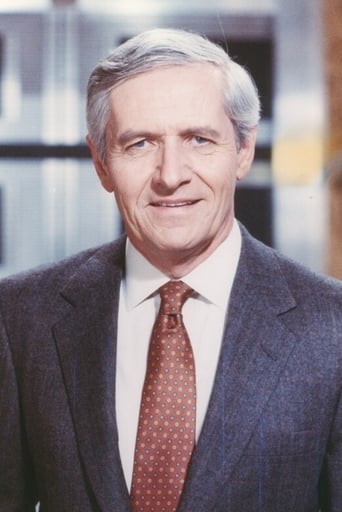Glucedee
It's hard to see any effort in the film. There's no comedy to speak of, no real drama and, worst of all.
Neive Bellamy
Excellent and certainly provocative... If nothing else, the film is a real conversation starter.
Bill Slocum
Watching "Petulia" is fascinating not because it is a good film but because it represents such a convoluted period in our living history. The 1960s were beautiful and weird and depressing in equal measure; so is "Petulia."Dr. Archie Bollen (George C. Scott) is trying to make a graceful exit from a social benefit when he is accosted by the title character, played by Julie Christie. She tells Archie she's married and proposes they leave together then and there to have an affair. What follows includes a series of false starts, heartbreaks, and a dangerous beating, with Archie struggling between his feelings for Petulia and his sense she's not all there."All this 'I Love Lucy' jazz, it's only cute for a while," he tells her."I'm fighting for your life," she replies.Director Richard Lester made his mark directing the Beatles; their paths had diverged by 1968 but they seemed to be on the same wavelength. "Petulia" is a psychedelic send-up of middle-class values, playing in its nonsensical, random way the same head trips John Lennon employed in one of his hit songs from the same year, "I Am The Walrus." At the heart of the film is a line by one of Archie's friends: "Nobody has a life anymore."The message comes through; what "Petulia" needs is a bit more plot and characters you can care about. Neither Scott nor Christie were warm, engaging actors, and too often here they seem content at posing. Richard Chamberlain plays Petulia's husband, David, a dangerously unstable man who lives off his rich father and tries to affect a smoothness that doesn't carry into his dealings with Petulia. With David, you want to learn why he is the way he is and whether he has the will to overcome his dark side. But David is the only character with an inner life worth exploring.What I enjoy about "Petulia" are the visuals, shot by Nicolas Roeg who captures the panorama of San Francisco in its late 1960s glory. The colors are gorgeous, and you get these odd images lasting a few frames of such things as a dog eating bull guts, nuns speeding around a garage in a sports car, and a topless woman having lunch.This sort of eclectic vision seems suited for a movie that begins at the middle and then tells you the beginning and the end of the story simultaneously. There are also multiple flashbacks, flash-forwards, and even shots of things that happen only in the characters' heads.Sound like fun? It kind of is for a while, in that arresting 1960s way that recalls better films with similar frameworks like "Blow Up" and "if….", but the kookiness and the second-unit shots wind up swallowing too much of the thin narrative, to the point where Archie and Petulia's problems don't amount to a hill of beans even in their own mixed-up world."We didn't even give each other a cold," is how one of them leaves it with the other. It's a line that works just as well for the film as a whole.
tomsview
Although I wouldn't say this film is actually enjoyable, it does give a good feel for life in the 60's - at a certain level at least.From topless bars to the TVs crackling away in the background about the war in Vietnam, "Petulia" has plenty of incidental detail of the mid-60s. The story itself seems rather pointless, also reflecting how many seemed to feel about their lives at the time. In a way, it captures the age as effectively as "Woodstock" or "Easy Rider", but from a totally different viewpoint.Set in San Francisco, Petulia Danner (Julie Christie) is an impulsive woman who latches onto the prominent middle aged Dr. Archie Bollen (George C Scott) and ignites an affair of sorts. Everybody in the story has issues: she is caught in a marriage to David Danner (Richard Chamberlain), an abusive man who has issues to spare, while Archie Bollen has recently left his wife and two young boys. Archie's friends find it hard to accept the breakup as it highlights their own fragile relationships. In fine 60s style, everyone is searching for meaning to their lives, and on it goes until the bleak fade out.Director Mark Lester didn't miss one chic effect; the film has flash-forwards as well as flashbacks - all very now back then, but looking too self-conscious these days.The film has two of the most beautiful faces of the time: a luminous Julie Christie and a smoothly handsome Richard Chamberlain, and one of the craggiest, George C Scott, just before he strapped on the ivory-handled pistols for "Patton". Joseph Cotton as David Danner's insufferable father represented the despised establishment of the day.John Barry composed a wistful score full of longing that had more depth than much of the film. During the 60s Barry came up with one brilliant score after another; "Petulia" was one of them.People are often fascinated by the era just before they were born and for those with a fascination for the 60s the film has much to offer. At first glance, it may not seem connected with flower power, hippie culture or free love, but in a way, those attitudes can be seen shaping the actions of the film's characters.With that said though, this is a film where the sum of the parts is actually greater than the whole.
bkoganbing
Petulia is one of those films that some critics find creative because it takes the story plot line and presents it in a non linear manner. We're all supposed to think that's creative when in fact all it is is confusing. This is what passes for art.That being said had the film been presented in a straightforward manner I might have found more to like in it. When it all gets straightened out the story involves uptight middle-class doctor George C. Scott who is in the process of getting a divorce from Shirley Knight. At a swinging party in San Francisco where the story takes place, Scott is propositioned by Julie Christie on about thirty seconds worth of acquaintance.Scott puts her off, the fact that she's already married to the wealthy Richard Chamberlain is certainly enough reason. But Julie is a persistent one, she shows up the next night at Scott's apartment with a tuba she ripped off from a pawnshop. Sounds bizarre, but what we're able to perceive is that this is really a desperate cry for help on many levels. Scott only gradually comes around to seeing it, we do also mainly because the way the story is told.Christie and Scott are both good in the leads, there is a performance by Joseph Cotten as Chamberlain's father who exudes a sinister presence in the few scenes he's in. As Joseph Cotten is one of my favorite players it's only natural I would commend him for his work here.A straightforward telling of the tale might have served Petulia better, but someone like director Richard Lester among others was just trying to be arty.
Lee Eisenberg
Like many movies, "Petulia" tells the story of a young woman (Julie Christie) unsatisfied with her marriage getting involved with another man (George C. Scott). The major difference is that this movie is set amid the counterculture of San Francisco in the late '60s - so why's she getting involved with an older man, I wonder. It seems like the movie's main point is to try and capitalize on what happened in the '60s. I mean, it's not like Julie Christie, George C. Scott and Richard Chamberlain were born to play these roles - although I can't imagine who else would play them.Anyway, it's maybe worth seeing once. "Lost in Translation" managed to elaborate on the idea. Also starring Shirley Knight and Janis Joplin (happy birthday, Janis!).







